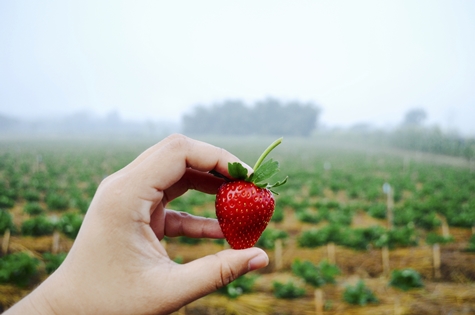Ensuring Food Safety in Your Organic Products
By Tim Livingstone
Concerns over the health implications of pesticides, synthetic fertilizers, the pharmaceuticals given animals raised for their meat, and the environmental damage attributable to the chemicalization of farming, have helped make organic food increasingly popular over the past decade or so. There is also a growing concern over the factory-like conditions in which animals and poultry are increasingly forced to live out their lives. The increased popularity of organics has also naturally given rise to skepticism. Is organic food safe from pathogens and is it truly what it claims to be, or is it just a marketing gimmick designed to increase profits? Finally, can organic production really feed the world, as some people claim?
All certified organic farms in Canada must adhere to a comprehensive and federally-regulated set of Canadian Organic Standards. These standards establish best practices at the farm level and upstream, ensuring that the principles of health for the soil, plants, animals, people, and the planet are respected, and managed in a precautionary and responsible manner.

Third-Party Organic Inspections
What’s more, organic farmers and legislators in Canada have been pro-active from a food safety regulation stand point. Everything that happens on an organic farm must be documented, and annual third-party organic inspections are required to ensure that the standards are being followed. As part of the organic process, organic farms must adhere to specific mandated rules governing the use of manures and off-farm composts. Canada GAP and other food safety programs are now adopting some of the same rules that organic farms have used for decades.
In addition to rules surrounding the use of carbon inputs, organic production requires a detailed audit trail to ensure food integrity. Records for seeding, growing, harvest, storage, and sales all have to match to ensure that product sold as organic is actually what it claims to be. Few, if any, other food safety systems match the rigor and detail that goes into the record keeping practiced on organic farms.
A Holistic Approach
The production of organic food is well-documented and safe, and I believe it is the best way we have to solve a lot of the problems facing our world today, from carbon loss into the atmosphere, to the nutritional density of the food we eat. As an organic farmer myself, I get very upset by statements that claim yields are lower in organic systems and that therefore organic cannot feed the world. Properly grown organic crop yields routinely match, or can even exceed, those of chemically raised crops. The return cycling of compost and natural wastes in nature has built a fertile and living planet. Without this nutrient cycling our planet would look like Mars or some other uninhabited planet in space. Organic systems recognize this and bring a holistic approach to growing and producing the food we eat. Adherence to food safety protocols ensures it is also safe.
About the Author
Tim Livingstone is co-owner of Strawberry Hill Farm and President of the Atlantic Certified Organic Co-operative, and Vice President of the Organic Federation of Canada.




